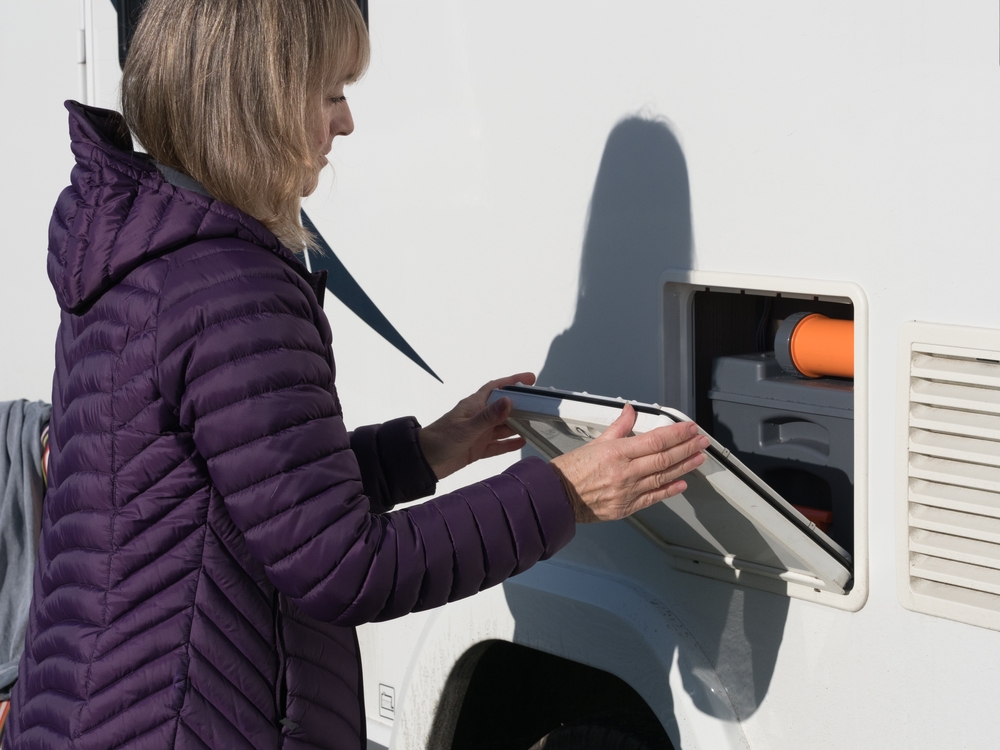
Owning a recreational vehicle (RV) is a dream for many travelers, offering the freedom to explore the open road without sacrificing comfort. However, with the convenience of an RV comes the responsibility of consistent and thorough maintenance. Failing to properly care for an RV can lead to costly repairs, unexpected breakdowns, and even safety hazards. In this blog, we’ll explore the most common RV maintenance mistakes, why they happen, and how you can avoid them to keep your RV in peak condition for years of memorable adventures.
Ignoring Roof Inspections and Seals
One of the most frequent and damaging RV maintenance issues arises from neglecting the roof. RV roofs are susceptible to water leaks, especially around vents, skylights, and seams. Unfortunately, many RV owners assume that their roof is fine simply because they haven’t noticed any internal leaks. However, water intrusion can be insidious, starting small and causing extensive structural damage before any visible symptoms emerge.
Regular inspections—ideally every 90 days—are critical. Owners should climb up and check all seams and seals for cracks, brittleness, or gaps. Special attention should be paid to caulking around roof penetrations. If any irregularities are found, resealing with a compatible RV sealant should be done promptly. This small task can prevent major damage like wood rot or mold, which often results in thousands of dollars in repairs.
Ignoring the roof is one of the most common RV maintenance mistakes, not due to laziness but often due to inaccessibility or the belief that roofs are resilient. But the truth is, a neglected roof can quietly undermine the structural integrity of your RV.
Skipping Tire Care and Maintenance
Tires are another high-risk area when it comes to RV maintenance issues. Unlike standard passenger vehicles, RVs are often stationary for long periods, which leads to dry rot, flat spots, and sidewall degradation. At the same time, when RVs are on the move, they carry substantial loads over long distances—conditions that demand reliable tires.
A critical mistake is checking only the tire pressure before a trip, without inspecting the tire’s age or physical condition. RV tires, even if they look fine, should generally be replaced every five to seven years regardless of mileage. UV rays and ozone exposure cause rubber compounds to deteriorate. Tread depth, sidewall cracks, bulges, or uneven wear patterns are all red flags.
Another overlooked aspect is proper weight distribution. If an RV is overloaded on one side or the weight isn’t balanced, it puts excessive strain on specific tires, increasing the risk of blowouts. Using a portable scale and consulting your vehicle’s weight rating can help maintain safety. Also, investing in a tire pressure monitoring system (TPMS) can alert drivers to dangerous conditions before disaster strikes.
Neglecting Battery and Electrical System Health
The electrical system is the beating heart of modern RVs, powering everything from lights to refrigerators, HVAC systems, and more. Yet many RV owners make the mistake of assuming their batteries are in good shape as long as their appliances function during a brief trip. Over time, especially during extended storage, battery life can degrade rapidly if not properly maintained.
One major oversight is failing to disconnect the battery during storage, leading to parasitic drains from appliances and detectors. This results in a deeply discharged battery, which can significantly shorten its lifespan. Batteries should be fully charged before storage, disconnected, and occasionally recharged to maintain health.
Additionally, failing to monitor water levels in lead-acid batteries is another widespread issue. Low water levels lead to sulfation, reducing battery capacity and efficiency. Performing a regular battery check—monitoring voltage, terminals for corrosion, and water levels—is a simple way to avoid power loss in the middle of nowhere.
Inadequate generator maintenance is also a common RV maintenance mistake. Generators should be run monthly under load and have oil and filters changed according to manufacturer guidelines. Skipping this leads to carbon buildup and starting problems, especially when you need it most.
Forgetting About the Plumbing System
Water systems in RVs can easily become a source of frustration when not maintained properly. From frozen pipes to foul-tasting water or leaking faucets, the plumbing system must be a top priority, especially if your RV sees seasonal use.
Winterizing the plumbing system is one of the most essential tasks often missed by new RV owners. If water is left in pipes during freezing temperatures, it can expand and crack pipes or fittings, resulting in leaks that are difficult and costly to locate and repair. Draining the system completely and adding non-toxic RV antifreeze is a must in cold climates.
Another mistake is failing to sanitize the fresh water system. Over time, water tanks can accumulate bacteria, biofilm, and foul odors. Sanitizing the fresh water tank with a bleach solution and thoroughly rinsing it every few months helps maintain water quality and prevents unpleasant surprises on the road.
Checking for leaks and ensuring water pressure regulators are in use are also crucial steps. Excessive water pressure from campground hookups can burst RV plumbing, so installing a regulator can save the system from unnecessary strain.
Inadequate HVAC and Appliance Servicing
Your RV’s HVAC system—air conditioning, furnace, and ventilation—is critical for comfort, but it’s frequently ignored until there’s a problem. One of the more subtle RV maintenance issues involves clogged filters, which reduce airflow and efficiency. Filters in air conditioners and furnaces should be cleaned or replaced regularly to avoid straining the unit and increasing energy use.
Refrigerators, particularly absorption-type models commonly found in RVs, require level positioning to operate correctly. Operating them while unlevel can damage internal components, a fact that’s often overlooked by less experienced RVers. Cleaning the burner area and ensuring unobstructed vents can also help maintain cooling efficiency.
Water heaters, too, need regular maintenance. Flushing sediment from the tank annually prevents buildup that reduces heating efficiency and causes corrosion. Anode rods should be inspected and replaced when worn to protect the tank lining.
Additionally, propane systems must be inspected for leaks and proper operation. Propane is a powerful and efficient fuel, but a leak can be catastrophic. A simple soapy water test on fittings or annual inspection by a certified technician can prevent dangerous situations.
Maintenance on RV appliances isn’t just about convenience—it’s about ensuring safety and preventing small issues from turning into full-system failures. These tasks are frequently overlooked until something breaks, often at the worst possible time.
Final Thoughts
Performing regular RV maintenance is not merely a recommendation; it’s a necessity. While owning an RV opens the door to countless adventures and memories, it also carries the obligation to care for a complex machine with systems that need ongoing attention. The common RV maintenance mistakes outlined above—from neglecting the roof to overlooking the plumbing and electrical systems—are often made not out of carelessness, but from a lack of awareness or experience.
By being proactive and developing a thorough maintenance checklist tailored to your specific RV model, you can reduce the risk of costly repairs and improve both the safety and longevity of your rig. Avoiding these common pitfalls allows you to spend less time fixing problems and more time enjoying the freedom of the open road.
Remember, successful RV ownership isn’t just about where you go—it’s about how well your RV gets you there and back again. Make regular maintenance a priority, and you’ll not only avoid the most common RV maintenance mistakes, but you’ll also build the kind of confidence that makes every journey a little smoother.
Need Vehicle Maintenance Near You?
Start your next adventure with confidence—reach out to us at Rocky Mountain RV & Service today! Whether you’re prepping for the open road or gearing up for rugged UTV trails, our expert team in Layton, Utah is here to deliver the maintenance and care your vehicle needs. From comprehensive 45-point RV inspections and slide-out RV services to suspension, clutch, and shock repairs for UTVs, we do it all—quickly, reliably, and affordably. We take pride in getting you back on the road and keeping you exploring without hassle. Visit our website or give us a call now to schedule your service—we can’t wait to help you hit the road again!
